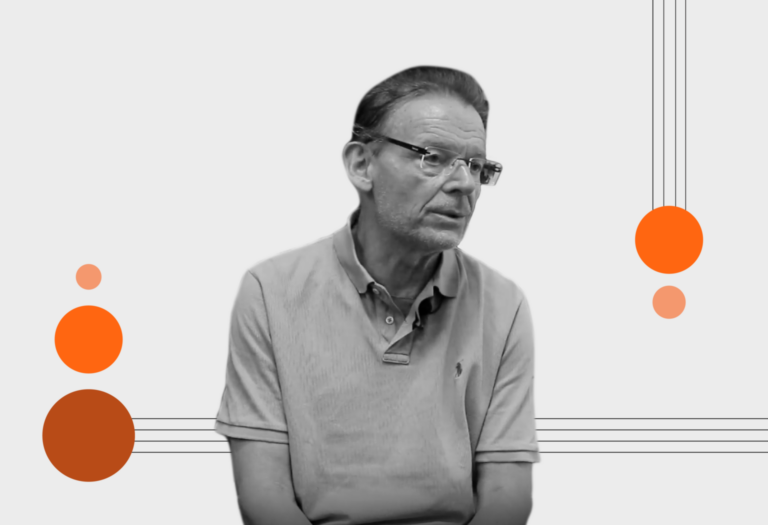Aging is usually associated with a state of physical and mental decline that occurs over the years and towards the end of our life. However, every day there is more evidence that suggests conditions such as being overweight and having obesity can accelerate this natural decay.
A recent study made by a group of researchers from the University of Chile (UChile) seeks to understand whether individuals who develop these conditions during childhood or adolescence could experience this deterioration sooner.
The idea arose when they found that in the Santiago cohort –a group of more than 1,000 Chileans who have been followed and studied since they were born between 1992 and 1996– there were some young individuals who had markers associated with advanced age.
“When we evaluated them, at 22 years of age, we noticed that some reported cardiometabolic parameters that reflect damage typical of older people,” says Paulina Correa, researcher at the Human Nutrition Unit of UChile and leader of the study, in an interview with TecScience.
With this in mind, they studied whether there is a gap between chronological age −the time that has passed since we were born and whenever we celebrate our birthday− and biological age −the level of deterioration of our cells, tissues and organs− in them.
Obesity and Aging
The study divided the cohort into three groups, according to the moment when obesity and overweight developed: the first one, where individuals got them around two years of age; the second one, with these two factors during adolescence and the third one, the control group, where it never developed.
The researchers took weight and blood pressure measurements, as well as blood samples to evaluate their lipid, triglyceride and glucose levels of the participants.
To find out their biological age they performed a test known as an epigenetic clock. This examines the DNA contained in the blood and then, using biochemical procedures and algorithms, finds epigenetic marks with which biological age can be determined.
As we become older, genes that increase the risk of disease are turned on and those that have a protective effect are turned off.
The Results
What they found out was that the group with overweight and obesity in their childhood had a biological age that was 17% above their chronological age; the second group (who developed them during adolescence) was 14% higher; while in the slim group, there was no such gap.
“There were some extreme cases in which individuals with 28 or 29 years of chronological age were 43 or 44 in terms of biological age,” says Correa.
In addition, the two groups with an early onset of overweight and obesity showed high triglyceride levels, insulin resistance, decreased HDL (known as good cholesterol), fatty liver disease (in two out of three individuals) and a shortening of their telomeres.
“Telomeres are these little legs that are on the ends of our chromosomes, when we age, they decrease in size,” explains the researcher.
With this evidence, the group of scientists were able to confirm that the early appearance of overweight and obesity can accelerate aging at the cellular and molecular level.
Understanding Obesity, Without Stigmatizing It
The acceleration of aging increases the risk of diseases such as hypertension, diabetes or Alzheimer’s and, in women, menopause may appear earlier. Given this, Paulina Correa emphasizes that the study seeks to better understand the phenomenon, not to stigmatize or blame people who are overweight or obese.
“In the end, what matters to us is that this accelerated aging does not impact their quality of life,” says Correa.
It is important to know what type of obesity each person has developed since there are several, according to Alexandro Martagón, research professor at the Institute for Obesity Research (IOR) and the Metabolic Diseases Research Unit, in an interview with TecScience.
“In the case of obesity, there are the metabolically ill or metabolically healthy types, the thin metabolically healthy and the thin metabolically ill,” explains Martagón.
He adds that accelerated aging could be associated with the constant state of inflammation that results from the progressive increase in the fatty tissue.
“The fat that gets accumulated throughout the body secretes hormones -called cytokines- that cause inflammation in multiple organs,” says Martagón.
When this imbalance begins, constant inflammation can lead to insulin resistance, type two diabetes, and reduced life expectancy.
Can the Damage to the Aging Rate be Reversed?
Fortunately, while the impact of obesity and overweight on physical deterioration is being investigated, interventions that potentially reduce the gap between chronological age and biological age have also been studied.
“With changes in lifestyle, biological age can even be lower than chronological age,” says Correa.
Through animal models and some human studies, it has been found that making adjustments, such as having a healthy diet, exercising and having regular medical check-ups, can reverse the physical damage caused by being overweight or having obesity −if there is any to begin with−.
“Every time we subject our muscles to exercise, they release proteins that have an anti-inflammatory effect,” says the expert.
In addition to that, some substances, such as rapmycin and metformin, have been tested in animal models and some human interventions and have shown to reduce the biological age of individuals treated with them.
The study by the Chilean researchers is the first cohort analysis in Latin America that seeks to investigate the relationship between being overweight or having obesity and accelerated aging.
“It is important that researchers from across the Latin American landscape continue to delve deeper into these research questions, so we can aim for a culture of prevention,” Correa concludes.


















